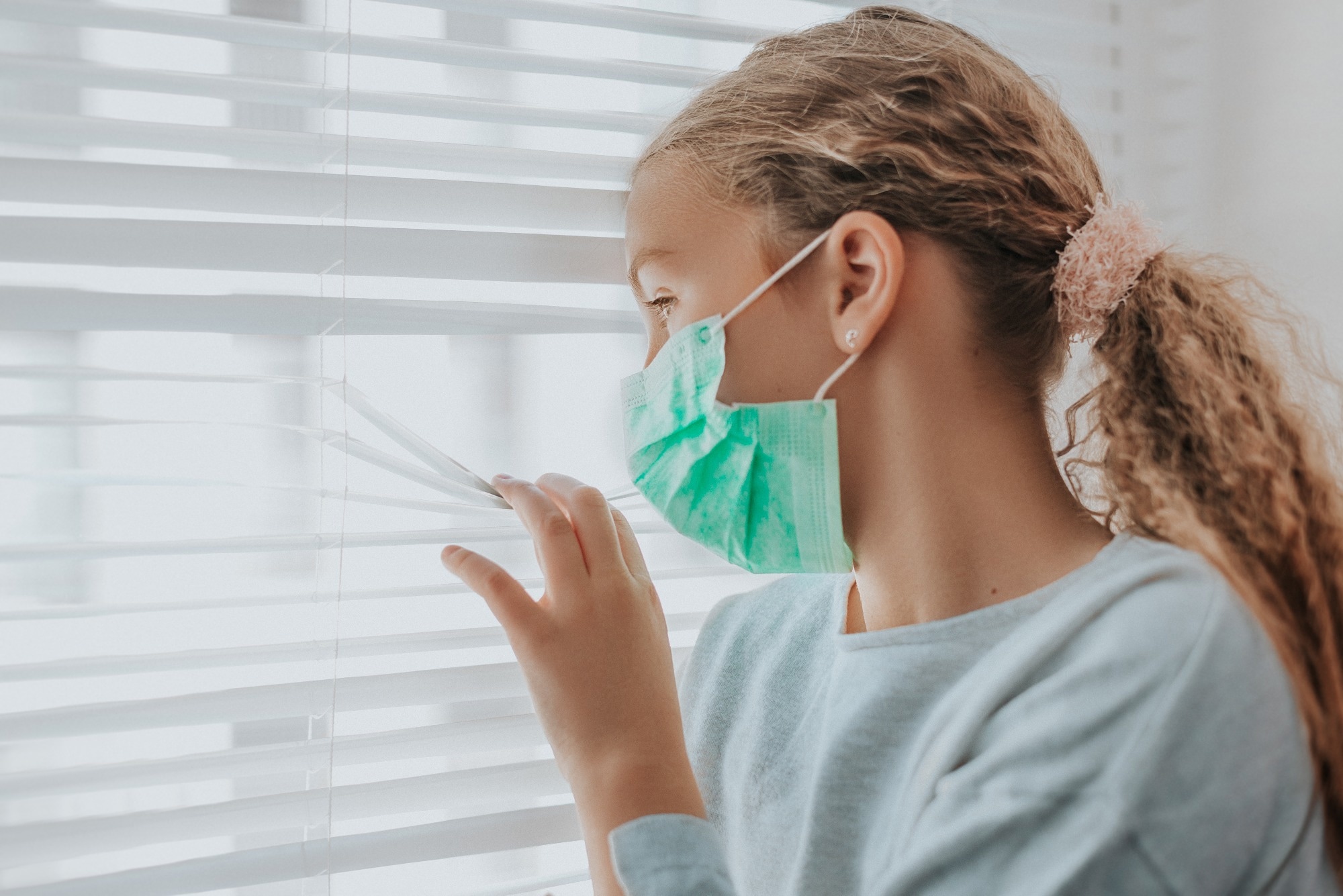In a recent study posted to the medRxiv* preprint server, researchers determined whether mindfulness was related to emotional resilience in children. They specifically investigated whether more mindfulness in children in the United States (US) resulted in positive mental health outcomes during the coronavirus disease 2019 (COVID-19) pandemic.
 Study: Mindfulness supports emotional resilience in children during the COVID-19 Pandemic. Image Credit: altafulla/Shutterstock
Study: Mindfulness supports emotional resilience in children during the COVID-19 Pandemic. Image Credit: altafulla/Shutterstock

 *Important notice: medRxiv publishes preliminary scientific reports that are not peer-reviewed and, therefore, should not be regarded as conclusive, guide clinical practice/health-related behavior, or treated as established information.
*Important notice: medRxiv publishes preliminary scientific reports that are not peer-reviewed and, therefore, should not be regarded as conclusive, guide clinical practice/health-related behavior, or treated as established information.
Background
During pandemic-related lockdowns, children experienced negative emotions like frustration and loneliness due to isolation. The degree to which they blamed themselves for these emotions, tried to avoid feeling them, and got caught up or maintained a healthy distance from them likely determined their overall mental health.
About the study
In the present correlational study, researchers examined self-reported data from 163 eight-to-ten-year-old children living in the US, collected between July 2020 and February 2021. Since the theoretical foundations of mindfulness are attention to the present and non-judgment, the researchers administered the Mindful Awareness Attention Scale (MAAS) and Child and Adolescent Mindfulness Measure (CAMM) in this study.
The CAMM captured propensities to self-blame and judge one’s feelings; its lower score indicated that a child adopted less with emotions and instead ruminated, catastrophized, and suppressed feelings. Higher scores on a self-reported scale consisting of 10 items querying the frequency of non-mindful thoughts represented greater levels of mindfulness.
Mental health outcomes encompassed anxiety, depression, perceived stress, and negative affect. The team calculated correlations between Child COVID Impact (predictor), the four mental health outcomes, and CAMM (moderator).
To measure child-reported anxiety and depressive symptoms, the team used the 25-item Revised Child Anxiety and Depression Scale (RCADS-25-C). Likewise, to measure negative affect and perceived stress, they administered a brief 13-item questionnaire and the Perceived Stress Scale for Children (PSS-C), respectively. Higher scores on both scales represented more negative affect and perceived stress in children. Notably, the team also developed a seven-item Child COVID Impact Scale that queried the impact of the COVID-19-induced pandemic on their daily life and their ability to see family members and friends. Yet again, higher scores on this scale indicated a greater pandemic impact.
Study findings
Of the 163 children, 87 were boys, and their average age was nine years and five months. Most participating children came from the US states of Georgia, Massachusetts, California, and Texas. As reported by their parents, 10, 24, and five children had anxiety, Attention-Deficit/Hyperactivity Disorder (ADHD), and both ADHD and anxiety, respectively. All children fell between zero to 65 (low) on the anxiety scale, while two and one fell in the moderate (65 to 70) and severe (>70) range on the depression scale, respectively. Bivariate analysis showed that mindfulness had strong negative correlations with mental health symptoms.
The researchers noted that children scoring high on mindfulness showed no correlation between rated COVID-19 impact and negative affect. On the contrary, those who scored low showed a positive correlation between COVID-19 impact and negative affect. Several previous studies have shown that self-reported mindfulness is correlated with lower psychological distress in adults during the COVID-19-induced pandemic. Another random-controlled trial (RCT) also showed that a four-week mobile-phone mindfulness intervention reduced anxiety symptoms in university students under quarantine. Studies by Coffman et al. (2006) and Williams (2008) showed that mindfully treating experiences in a non-judgmental and accepting manner could help individuals decrease depressive rumination.
Thus, it is likely that mindfulness interventions helped children cope with the COVID-19 pandemic-triggered feelings of loneliness and frustration due to chronic disruptions of school and home life.
Conclusions
The study analysis showed that higher levels of mindfulness might have helped children better cope with COVID-19 stressors. It likely moderated the relationship between COVID-19 child impact and negative affect through non-judgment and acceptance of emotions. However, more studies are needed to confirm the underlying mechanisms by which mindfulness facilitates emotional resilience in children.
Nevertheless, the study findings encourage the adoption of a mindfulness instruction in schools and at home to help children be more emotionally resilient. Mindfulness practices, such as body scans involving building attention to body sensations, could help develop mindfulness. These practices might support more accurate appraisals of bodily sensations and alleviate anxiety.

 *Important notice: medRxiv publishes preliminary scientific reports that are not peer-reviewed and, therefore, should not be regarded as conclusive, guide clinical practice/health-related behavior, or treated as established information.
*Important notice: medRxiv publishes preliminary scientific reports that are not peer-reviewed and, therefore, should not be regarded as conclusive, guide clinical practice/health-related behavior, or treated as established information.